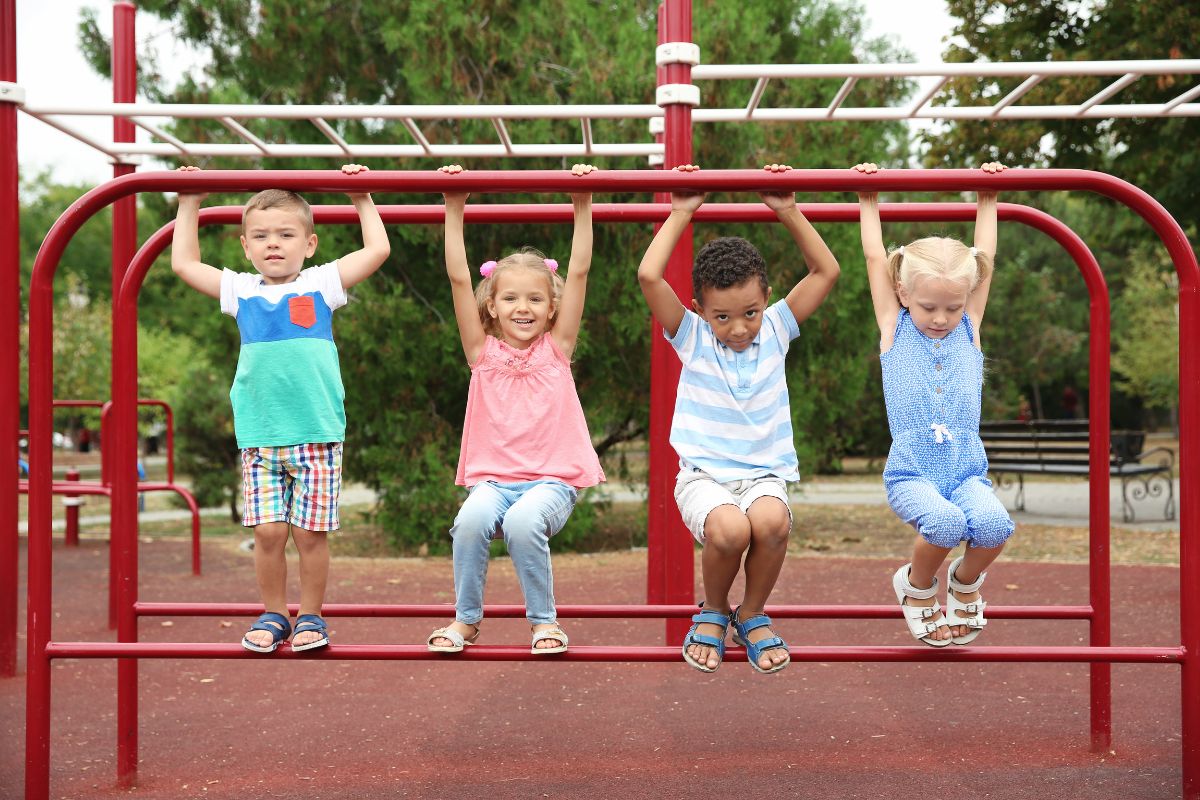
The Science of Play: How Playground Equipment Benefits Children
Why do kids love playgrounds? Is it the swings, the slides, or the climbing frames? Well, it’s all that and more! In this article, we will tell you about the science of play and how playground equipment benefits children. So, buckle up (or should we say, swing in), because we’re about to explore the magical world of slides, swings, and endless giggles!
Table of Contents
Benefits of Playground Equipment
Playground equipment serves a vital purpose in the development of children, extending beyond mere entertainment. Here are some benefits of playground equipment, supported by scientific studies and medical journals. Playground equipment from a reputable playground equipment supplier will not only be safe but also durable and sturdy, ensuring long-lasting use.
Physical Health
Playground equipment promotes physical activity among children, which is crucial for their overall well-being. When children climb frames, frames, swings, and slides; they use their muscles. This helps to build strength and coordination. According to a study published in PLOS ONE, playgrounds can play an important role in developing children’s fundamental movement skills.
Mental Well-being
Outdoor play has been linked to better mental health in children. It provides children with an opportunity to explore, imagine, and connect with their friends outside of classrooms or any other fixed environment. The SpringerLink chapter on school playgrounds highlights that if students don’t develop sufficient physical activity habits from settings such as school playgrounds, they are at risk of mental health problems later in life.
Social Skills
Playgrounds are social hubs for children. Children learn to take turns, share equipment, and interact with others, which are all critical social skills. The International Journal of Behavioral Nutrition and Physical Activity notes that playgrounds provide a major opportunity to intervene and improve children’s health in terms of physical activity, cognitive, and social outcomes.
Cognitive Development
Playground activities can also stimulate cognitive development. Children learn about cause and effect (e.g., when they go down a slide, they must climb up first), and they develop spatial awareness and problem-solving skills as they navigate through play structures.
Risk-Taking and Resilience
Playgrounds allow children to take risks in a controlled environment. This can lead to the development of resilience as they learn to overcome challenges and fears, such as climbing to the top of a jungle gym or swinging high.
Encourages Active Lifestyle
By providing fun and engaging physical activities, playgrounds encourage children to lead active lifestyles. This is crucial in combating the growing issue of childhood obesity and sedentary behaviour patterns.
Accessibility
The playgrounds are open to all children, in other words, allowing children of different abilities an equal opportunity to play with other kids. This instils a sense of belonging among children.
Benefits of Playing Outdoors for Different Age Groups
Spending time outdoors offers numerous advantages, regardless of age. Here’s how outdoor play positively impacts children of various age ranges:
Infants and Toddlers
- Early Exposure to Nature: Sharing nature with infants and toddlers fosters a lifelong love for the outdoors. Even at this young age, they can benefit from fresh air, bird songs, and natural textures.
- Tummy Time Outdoors: Placing babies on a blanket outdoors allows them to experience fresh breezes, forest scents, and plant textures. It stimulates their senses and encourages motor development.
- Bonding with Caregivers: Outdoor walks or strolls provide bonding opportunities for caregivers and babies.
Preschoolers and Grade-School Age Kids
- Physical Development: Outdoor play is beneficial for children’s physical development, as it allows them to practise challenging skills that may be difficult to master indoors. Engaging in activities such as jumping, climbing, cycling, and team sports can improve their physical abilities.
- Creativity and Imagination: In less familiar environments (compared to home or school), children think creatively. They invent games, explore new play equipment, and use their imagination.
- Cooperative Play: Playing with others teaches cooperation. Children learn to share space, decide on games, and work together.
- Exploration and Learning: Being in a natural environment exposes children to the world. They learn about plants, animals, and the environment.
- Motor Skills: Mud play, biking, and exploring parks contribute to motor skill development.
Older Children and Teens
- Family Bonding: Families can engage with the outdoors together. Try new activities, games, or challenges as a family.
- Nature Scavenger Hunts: Plan scavenger hunts as a way to discover and appreciate the natural environment. This activity promotes the development of observational skills and a curious mindset.
- Social Connections: Arrange outdoor playdates with friends to foster social connections among both children and adults.
- Challenge and Exploration: Encourage older children and teenagers to remain actively involved in outdoor activities such as hiking, biking, or exploring new locations. These challenges can help build resilience and boost confidence.
Remember, playing outside isn’t just about physical health; it also nurtures mental well-being, creativity, and a connection to nature.
Bottom Line
Playground equipment is key to holistic child development. It aids in physical growth, mental agility, and social skills. Encouraging outdoor play is essential for a healthy, happy childhood.
May 21, 2024

















